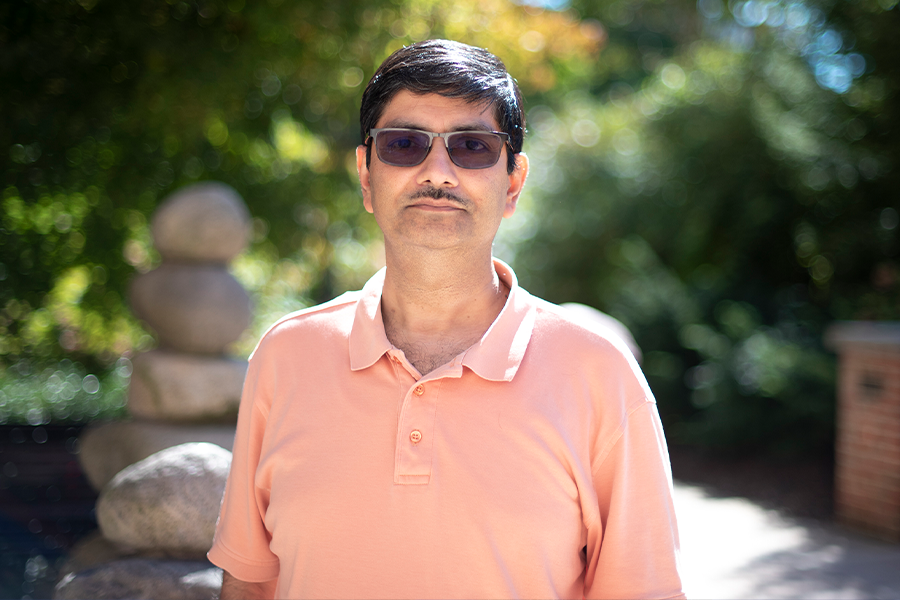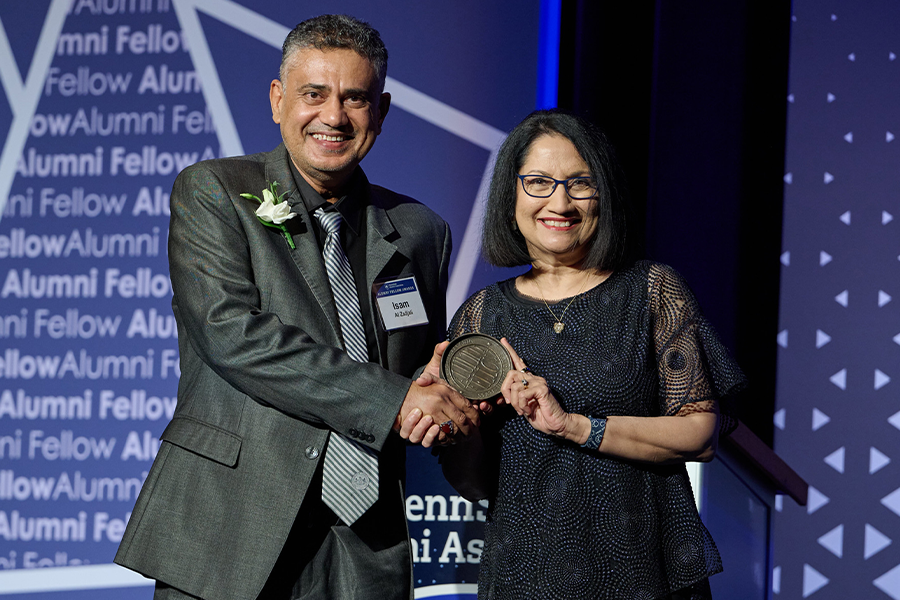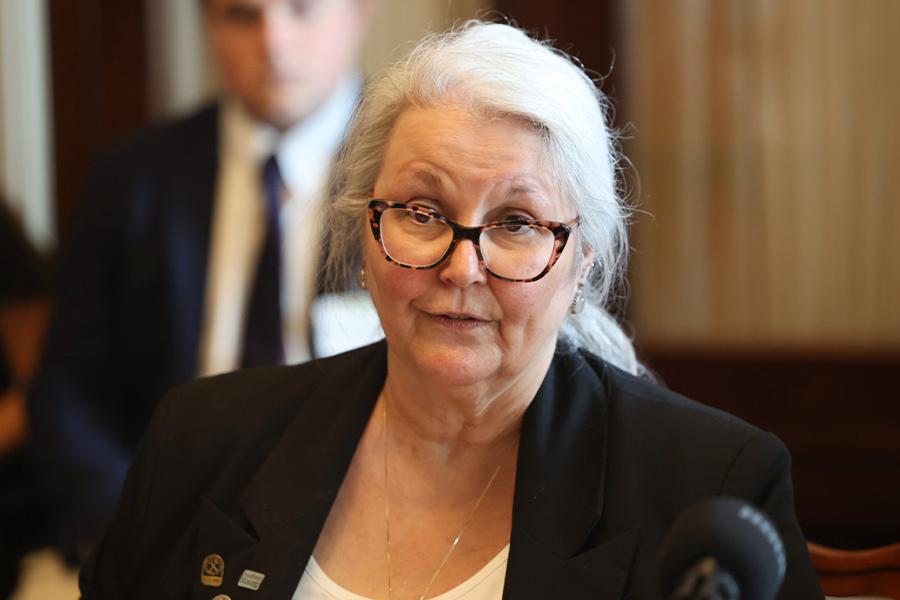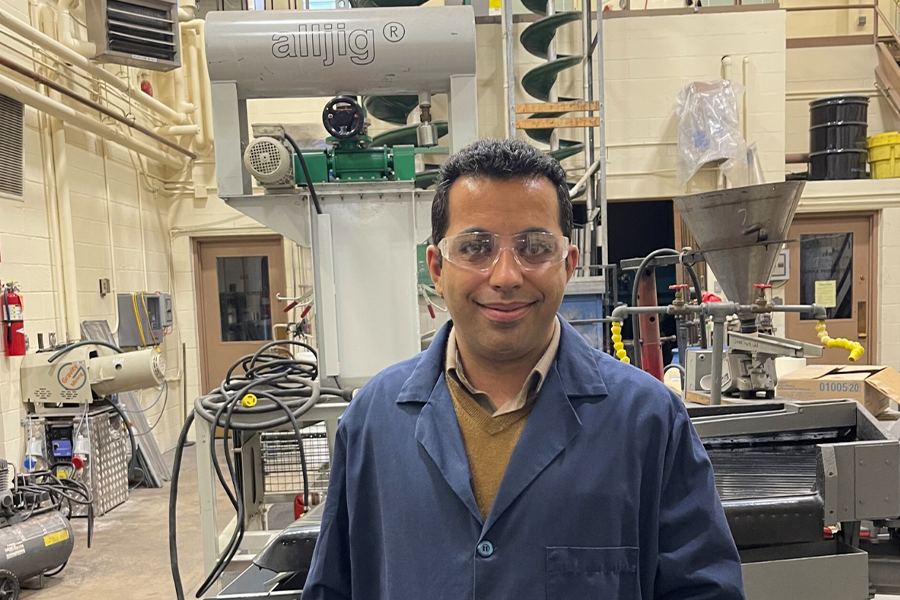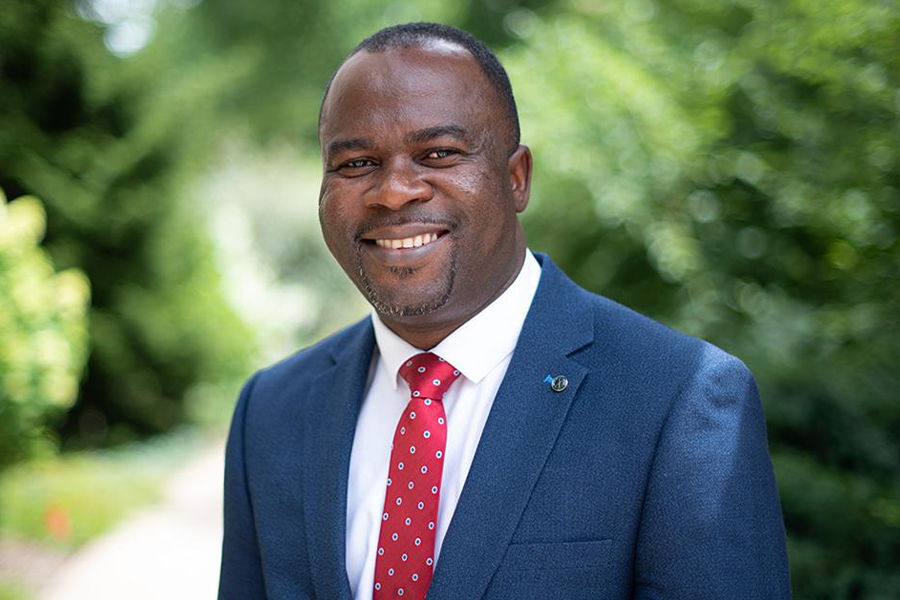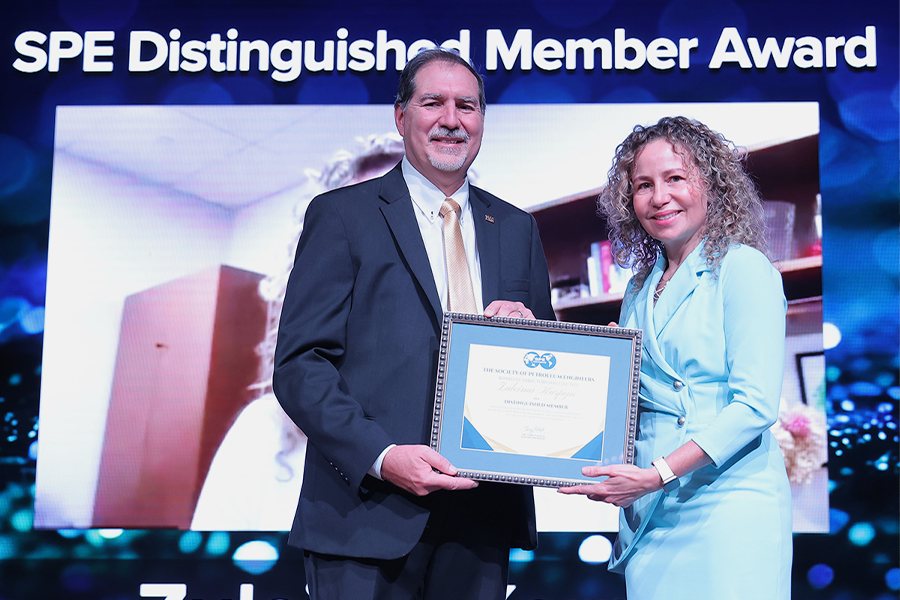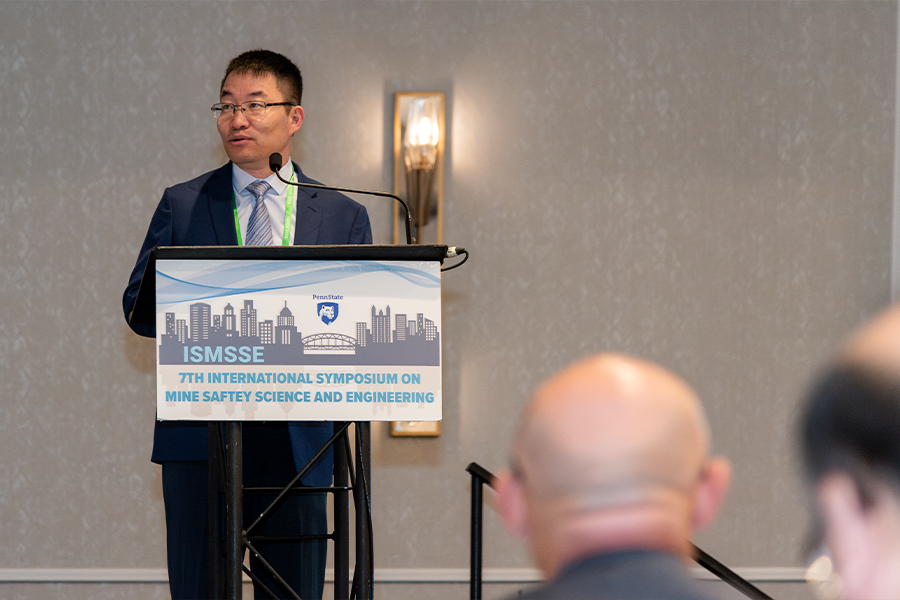Tsunami Sharmba, who’s completing an integrated graduate and undergraduate degree with majors in environmental systems engineering and philosophy, is one of three Schreyer Scholars who have volunteered for State College’s Alpha Fire Company.
Sekhar Bhattacharyya, associate teaching professor, Energy and Mineral Engineering, College of Earth and Mineral Sciences, is 1 of 51 teaching and clinical non-tenure-line faculty to receive the new Opportunity Grant Professional Development Program award.
Isam Al-Zadjali, who majored in petroleum and natural gas engineering, was recently named a 2024 Alumni Fellow and returned to the University Park campus from his home country of Oman to accept his fellowship from President Neeli Bendapudi.
Penn State’s Local Climate Action Program (LCAP) is making a valuable impact beyond Pennsylvania’s borders, thanks in part to recent World Campus Energy and Sustainability Policy graduate, Joe Thompson.
Barbara Arnold, professor of practice in mining engineering in the Penn State College of Earth and Mineral Sciences, told a U.S. congressional committee in September that the United States will need to make dramatic advances to increase its technical- and skilled-labor workforce to power its green energy future and to become less reliant on foreign nations for securing materials used in both everyday devices and critical national security applications.
Joshua Hasenau, a third-year Penn State student, was part of a summer internship with the New Enterprise Stone and Lime Company, a construction company from New Enterprise, Pennsylvania, that produces aggregates, asphalt, and concrete.
Mohammad Rezaee, associate professor of energy and mineral engineering, and his team have founded Intel-E-Waste, a startup offering a sustainable e-waste recycling process.
Nelson Y. Dzade, assistant professor of energy and mineral engineering in the Penn State College of Earth and Mineral Sciences, has received a 2024 Early Career Research Award from the U.S. Department of Energy (DOE). Dzade will use the five-year, $875,000 award to develop a multi-scale framework for predicting and understanding interfaces in solar cells.
Zuleima Karpyn, Donohue Family Professor of Petroleum and Natural Gas Engineering, and associate dean for graduate education and research in the College of Earth and Mineral Sciences, was recently named a distinguished member by the Society of Petroleum Engineers (SPE) at the society’s annual technical conference held in New Orleans.
This fall, the Penn State Mining Engineering program invited engineers worldwide to Pittsburgh for the 7th International Symposium on Mine Safety Science and Engineering (ISMSSE). At the symposium, researchers and experts from academia, industry and scientific research institutes shared new concepts and exhibited technical equipment to forward mine safety science and engineering.



